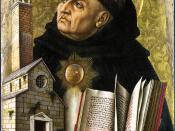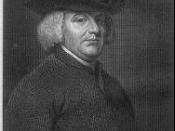In chapter 9, we read about natural theology and the two arguments for the existence of god. Those two arguments are The Cosmological Argument and The Teleological Argument.
In reading the chapter we define the difference between Natural Theology and Revealed Theology. Natural Theology is the study or science of god through natural intellect in its natural state, unaided by any special or supernatural input. It is also referred as rational theology. Revealed theology means knowledge of god through special revelation such as the bible, church, Moses, Christ, the Holy Spirit etc... In revealed theology god has his own way of approaching humanity.
It is important to note that most philosophers who have made the strongest arguments of god's existence have already believed in divine revelation. They needed strong arguments that were unbiased to show the world of god's existence.
In believing in god we first must prove that god exists.
This brings us to the two most important arguments on gods existence. The cosmological argument is based on the belief that there must be a first cause of everything. It's like saying "God has to exist, the universe had to come from somewhere".
The most famous proofs for god are in St Thomas Aquinas "Five Ways". Here the existence of god is proved in five ways.
1.The argument of motion. Here he explains that everything in motion has to be caused by someone or something and that when you backtrack to the original source of motion you get god.
2.The nature of efficient cause. It is first necessary to admit a first efficient cause, because no one can be prior to self. Therefore the first efficient cause is god.
3. Possibility and necessity. Because something can not-be (existed) at some time is not (non existent).


